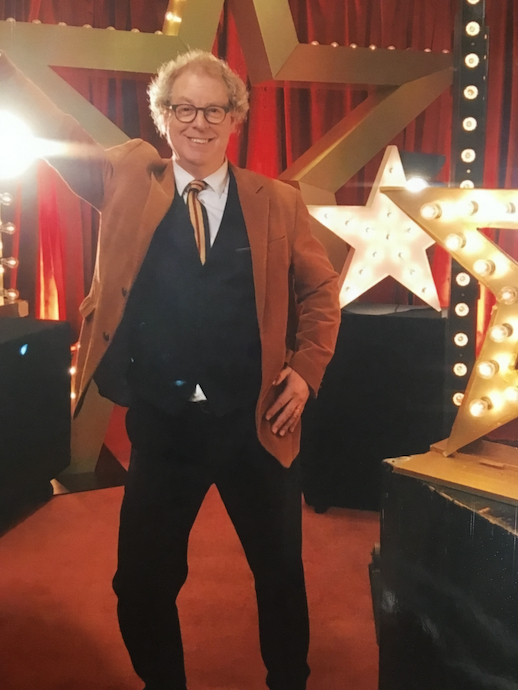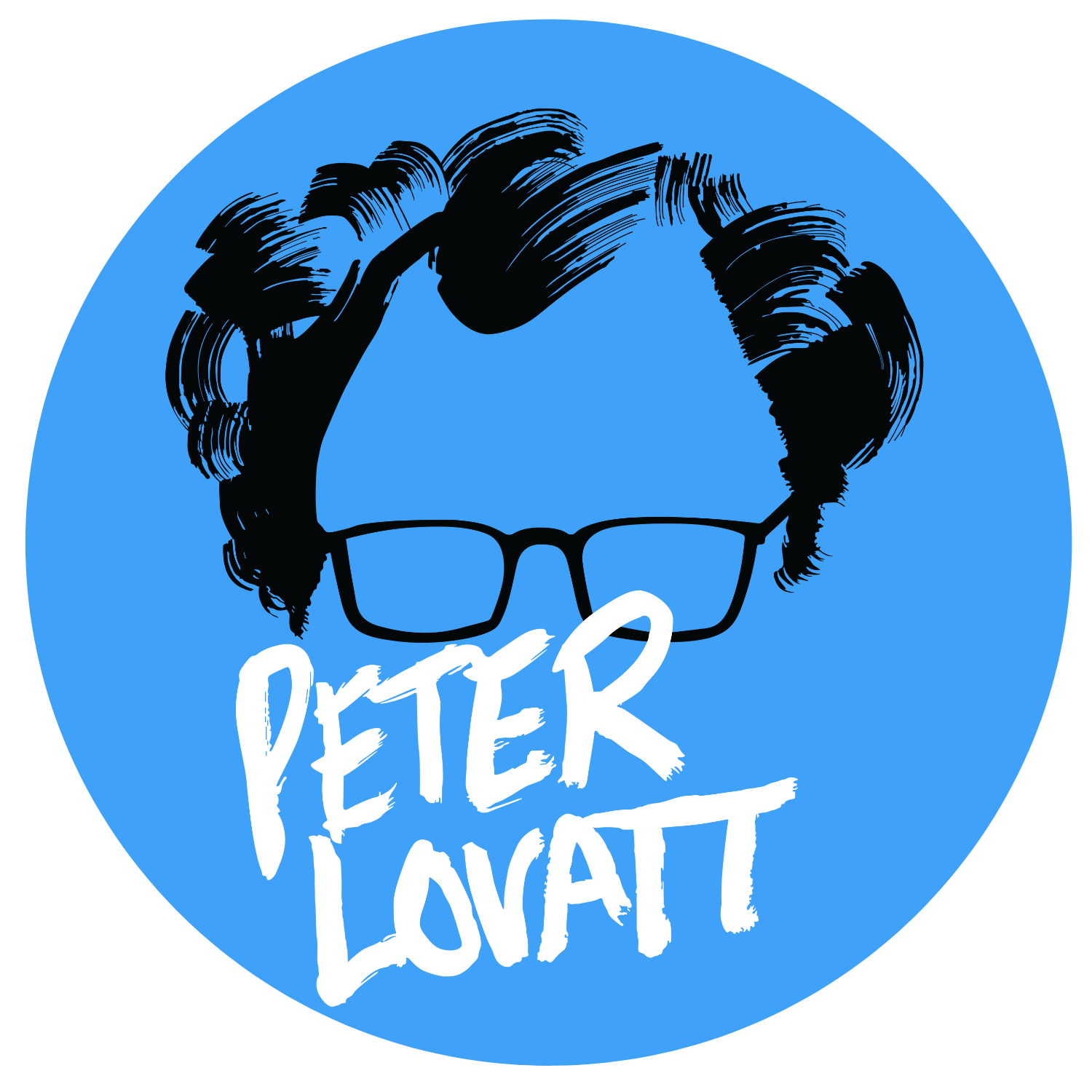

Why did you apply for BGT?
As a university lecturer I love my subject, the Psychology of Movement and Dance. I wanted to give the biggest lecture of my life and to share my subject with the largest possible audience. As no one has ever given a lecture on Britain’s Got Talent before I thought the world was ready for an entertaining and groovy lecture. Also, I heard that the auditions would be held at the London Palladium, and walking on that stage has been a dream for as long as I can remember. I LOVED being at the London Palladium, I even got to see where Bruce Forsyth’s ashes are interned under the stage.
I also wanted to experience what it felt like, psychologically, going through a reality tv audition. I give lectures on the Psychology of Performing Arts, and although I performed in my younger years, I wanted to experience the “reality” of a reality TV audition first hand.
What was the audition like?
The audition was both exhilarating and terrifying. Before the audition I was worried that I wouldn’t be able to give a lecture in just three minutes, as I had never done that before. As I walked on to the stage, I felt a bolt of electricity run through my body. The auditorium looked smaller than I was expecting, and it seemed such an intimate place. 35 years ago, when I was a professional dancer, I used to attend auditions, but they weren’t like this. Performing in front of an auditioning panel is one thing and performing in front of a live audience is something else, but to audition and perform in front of both at the same time is something completely different, something I had never done before. During my audition I wanted to give a lecture and get the audience dancing. This is what I do, I explain the science of movement and dance, by getting the audience to dance.
How did you think the judges would react to your audition?
I was expecting some of the judges to engage with it, and some of the judges to switch off. Regardless of their reaction, I hoped they would enjoy it, and maybe learn something. My greatest fear was that I’d get four buzzers and have to walk off before the end of the lecture; and I was ready for that.
You say that you had prepared yourself for the worst of all outcomes. Tell us more about how you prepare or something like that?
In addition to preparing your act, you have to prepare yourself psychologically too. I do this by thinking about the four corners of Psychology, these are the Social, Cognitive, Physical and Emotional aspects.
Social: It is important to have a good social support network. I had someone supportive with me all day, and I had a group of family and friends in the auditorium too. I knew that whatever happened on the stage I would be able to count on their support. It was also important before deciding to take part in the process to discuss the pros and cons of being on the show with my support network. This made me feel as though I was part of a team, and we were giving a group performance.
Cognitive: Mental skills are absolutely essential for any performance. This includes managing anxiety, having a clear idea of what my motivation was for taking part in BGT, managing tension and relaxation throughout the day, and thinking about my self-esteem, self-worth and social identity. Mental skills can give you a coat of psychological armour; no-one likes to be criticised, mental skills training can help deflect the critical arrows by helping performers understand that it is the act that is being criticised, not the person.
Physical: It’s important to be physically fit because filming days can be very long. I arrived at the London Palladium at 8am and didn’t go on stage until after 9pm. The day was exhausting. I had to make sure that I had a good breakfast and I had access to food and drink throughout the day. Thinking about and managing the physical consequences of performance anxiety was important too, especially as I would be dancing, I knew I had to keep my muscles warm and stretched all day, but I also knew that I couldn’t go on stage physically exhausted.
Emotional: I tried to frame the whole experience of taking part in Britain’s Got Talent as just about having some fun and I tried not to take myself too seriously. I agreed with loved ones that I could pull out at any time. I enjoyed experiencing the different emotional states, the excitement, anticipation, butterflies, awe and wonder, fear, rejection, without letting them interfere with my mental skills and sense of self. Being part of Britain’s Got Talent is like spending the day at a theme park, where for three minutes you are one of the rides.
How did you think the audience would react to your audition?
I hoped the audience would enjoy the lecture and join in with the dancing. I have given lectures to very large groups of people who have always joined in with a good boogie, but in these lectures, I always spend some time getting the audience warmed up, both physically and psychologically. In Britain’s Got Talent I didn’t have time to warm the audience up, so I didn’t know whether they’d join in, and as this is a central part of my performance it added extra tension.
How did you think you would react to your audition?
I wasn’t sure. I’d rehearsed my three-minute set hundreds of times so I knew what I was going to say, but it was the performance anxiety, or stage fright, that worried me. I give a lecture at the university on performance anxiety so I knew what to expect, in terms of the racing heart, tight muscles and dry mouth, and I tried to put to the back of mind that my performance might be criticised by the judges. I was also worried because I had some members of my family, and some good friends, in the audience, and I didn’t want to let them down. Although I have given thousands of lectures before, this one was completely different; It was a gladiatorial experience, I felt like a gladiator going in to face four lions.
Did you enjoy the experience?
Yes! I loved it. Walking out on to the London Palladium stage was a bucket list item ticked off. Then, when the audience stood up and danced with me, it was a dream come true. At one point even all of the judges stood up and danced, even Simon Cowell, I wasn’t expecting that! But it was over too soon. Three minutes goes by in a blink of the eye; I wanted to dance with the audience all night long. It was interesting to see how each member of the judging panel reacted to my audition and each of their reactions linked very much into the research I do on why people do or don’t dance.
Did you meet any other contestants and how did they find the experience?
Meeting the other contestants was one of the best parts of the whole experience. Some were excited, some very quiet, some extremely nervous. I loved being around all the other performers. The range of other contestants was as wide as the Grand Canyon. There were first time performers, performers who’d just created their first act, seasoned comedians, young people and older adults too. I even met a legendary performer who used to be on prime-time TV in the 1980s. She’d flown over from the USA the night before the audition, which made my journey to the theatre seem like a hop, skip and a jump. I love being around performers. However, there was one chap, a young magician, who I spoke with backstage as we were in the wings before we went on. He asked me what my act was. I told him I was going to give a lecture and he looked at me with puzzled disbelief, and he asked “and in what way is that going to be in any way entertaining?” I must say, it made me wonder. I bet he wins. I think it was the theatrical equivalent of sledging.
What was it like behind the scenes?
Behind the scenes was vibrant, it was packed with what seemed like dozens of different filming stations; behind the stage, under the stage, in corridors, on the stairs and in holding rooms. Each filming station had camera and sound operators, directors, researchers and people writing down everything that was said. It was a huge operation. I arrived at 8am on the day and spent time with at least ten different film crews, which I loved. My favourite bit of filming was dancing in the middle of the road in Oxford Street in London’s West End.
What was your take on the judges’ reaction to your audition?
The judges’ reaction to my audition was at first surprising and then predictable. When I started to give my lecture, I asked the audience to stand up as I taught them a dance routine. I was surprised to see all the judges stand up and join in, even Simon stood up and wiggled for a moment; I think he even smiled. For a second, I was overjoyed, and then it turned. Simon sat down and buzzed. It was SO loud. On TV the buzzer doesn’t sound too bad, but in real life it makes the whole stage vibrate. You don’t just hear the buzzer, you feel it too. Although I was expecting to get buzzed, let’s face it, I was giving a lecture on Britain’s Got Talent, when it happened I didn’t know what to do. I thought it was all over and I remember thinking, and perhaps saying out loud, “Oh, should I carry on?” It knocked me off my stride. I’m used to the occasional student looking at their phones during lectures, or chatting, but I’ve never heard a buzzer that loud before. I did carry on, and then I heard a second buzzer, but this was just Simon playing around with David’s buzzer, so it didn’t count. At the end of the three minutes I stood and waited for the judges’ feedback and their verdict. Simon didn’t like it, he said he wasn’t sure whether there was either too much talking or too much dancing, either way, talking and dancing is pretty much, my whole routine. David, Amanda and Alesha were much more positive. They all gave me a great big yes, so I was told I was through to the next round. I think Simon’s reaction was typical of a lot of people’s reaction to dancing. Some people find dancing, especially their own dancing, uncomfortable. Many people say that they don’t dance because they feel self-conscious, or they don’t know what to do, or because they think that dancing will make them look silly. Some people think that dancing is something that “other people” do, or is in some way not for them. I think Simon’s reaction fell into several of these categories. What was amazing though, was that Simon joined in with the dancing to start with, and he looked like he was enjoying himself.
Do you think auditionees need to have any coaching or support to help them to cope with the BGT process?
The BGT process can be very up and down. It’s an emotional rollercoaster. Members of the production team are lovely to all the contestants when they arrive. They make you feel wonderful and fill you with confidence. They make you feel as if there is no doubt that you’ll do well, you are well and truly fluffed up. You get the impression that getting buzzed off is something that only happens to other people, and you’ll be fine. However, people are buzzed off, they’re criticised and some people are humiliated. I witnessed several people coming off stage in tears and I saw some others who looked psychologically crushed. They’d believed that what they had to offer was entertaining and valuable. When they were going up the steep side of the coaster they might have believed that they’d get to the top and plateau, perhaps even get the golden buzzer. But then the roller coaster takes a steep dive, steeper than expected, and the decline can take your breath away. There was immediate support backstage at the London Palladium, but I do wonder, and worry about, how some people feel when they get home and the adrenalin wears off. I am very lucky, I have a wonderful support network of friends and family (my wife is a therapist), I think I would feel very different if I was going home after the show to an empty apartment.

Dr Peter Lovatt spent over 20 years working as a university academic. He set up the Dance Psychology Lab to understand dance and dancers from a psychological, scientific perspective. His research has been published in peer-reviewed journals and his teaching has been highly commended. Find out more about his academic life here
Peter Lovatt is an author and he has written two books: “The Dance Cure, the surprising secret to being smarter, stronger, happier” was first published by Short Books in the UK in 2020. “Dance Psychology, the science of dance and dancers” was first published in the UK in 2018. Peter has also writes commissioned articles. Find out more about his writing life here
Peter Lovatt is an international keynote speaker who delivers groovy keynotes which inspire, entertain and get minds and pulses racing. Peter has given keynote talks around the world and he has worked with organisations from different sectors, for example, in the banking, tech, creative, education, health and automotive industries. Find out more about his keynotes here
Peter Lovatt is a founding director of the Movement in Practice (MiP) Academy. The MiP Academy is a specialist provider of education in the psychology of movement and dance. MiP Academy is an accredited provider of Continuing Professional Development (CPD), Continuing Education (CE) and Continuing Professional Education (CPE), providing both anytime learning and scheduled face-to-face learning opportunities. Find out more about MiP Academy here
Peter Lovatt became known as Dr Dance through his TV and media work. He first appeared as Dr Dance on the Graham Norton Show (BBC) in 2008 and Dr Dance has since made over 1000 appearances across all major UK TV and radio networks, in magazines and newspapers and on stage. Dr Dance has made several stage shows, including “Dance Dr Dance” (2010), “INSPIRED Psychology Danced” (2011) and “Boogie on the Brain” (2018). Find out more about Dr Dance here
Peter Lovatt lives on the beautiful north Norfolk coast with his partner and their two sons.
Find out more about Peter’s latest news here
